An expert from the Ministry of Education rejected the view that integrated subjects were implemented hastily, saying that the industry spent decades researching before applying them.
According to the new program, secondary school students no longer study Biology, Physics, Chemistry, History, and Geography separately, but study two Natural Sciences, History and Geography, called integrated subjects.
After two years of integrated teaching, many schools still let teachers of each subject teach that subject, and when it comes to exams, they create the same questions, combine them, and agree on the scores. Many teachers are struggling, thinking that integrated subjects affect both teachers and students, and are ineffective. The Ministry of Education and Training admits that integrated teaching is one of the biggest difficulties when implementing the new program.
As a program developer and teacher trainer, Associate Professor, Dr. Nguyen Thuy Hong, Director of the teacher training and development program; former Deputy Director of the Department of Teachers and Educational Managers, Ministry of Education and Training, shares her views on integrated teaching today.
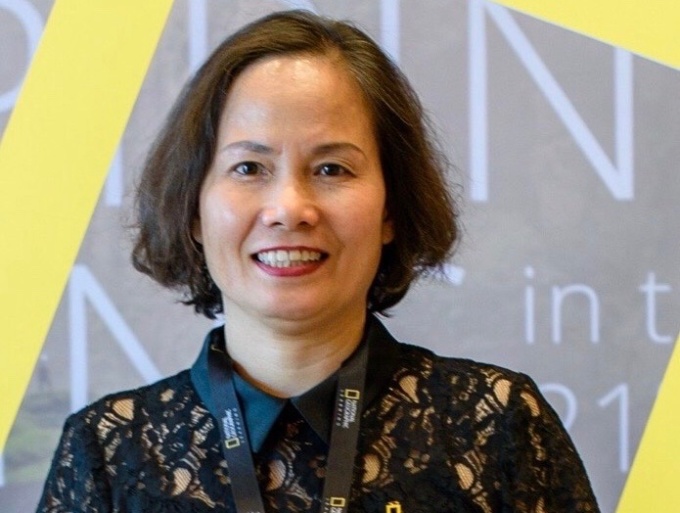
Associate Professor, Dr. Nguyen Thuy Hong. Photo: Provided by the character
- There is a view that implementing the new program, including integrated subjects, is hasty when facilities and human resources are not guaranteed?
- I affirm that the preparation of the 2018 general education program, as well as the viewpoints on teaching and learning to develop capacity and integrated teaching, is not hasty, but even very thorough.
In education, curriculum development is a regular activity. Science has concluded that the cycle for major changes in the curriculum of most countries is about 10 years. In Vietnam, due to the country's conditions, this cycle is often longer. From 2006 to 2018, we had a new curriculum, which began to be applied in 2020.
Previously, since the 1990s, the Government has created conditions for the Ministry of Education and Training to develop many projects; conduct systematic research and experiments on general education innovation on basic elements such as programs, textbooks and reference materials, teaching and assessment methods, teaching conditions, teacher training, etc.
Many ministerial-level projects have been carried out, focusing on evaluating and drawing experience from the development of general education programs in Vietnam and around the world to find suitable solutions. Professional activities, experiments, policy development... have been carried out continuously from 2006 to present.
The issue of integrated teaching was also studied early. In the 2006 general education program, integrated teaching was implemented at the primary level, reflected in the subjects of Nature and Society, Science, History and Geography, and Vietnamese. At secondary and high schools, integration was reflected in Literature, Mathematics, and elective subjects.
Since 2000, integrated teaching topics have been regularly organized for teachers in many pedagogical schools, education development projects, training courses, and thematic activities.
Therefore, I think the preparation of the education sector is good, very ready. However, innovation is a process, to achieve the desired results cannot be arbitrary or hasty, and also encounter many difficulties from practice.
- How are teachers trained to teach integration?
In June 2021, the Ministry of Education and Training issued guidelines on integrated teaching, assigning principals to assign appropriate teachers to teach the program's content based on practical situations.
One month later, the Ministry issued two decisions on training teachers of Natural Sciences, History and Geography, and "this training program is considered the minimum condition for each teacher to be able to start implementing integrated teaching".
Accordingly, teachers are trained for 20-36 credits, each credit is 45 hours. Specifically, teachers who have graduated from pedagogy or bachelor's degree in Physics - Chemistry, Chemistry - Biology must study 20 credits. Those who have graduated from pedagogy with a single subject must study 36 credits of training program.
Teachers can study intensively and continuously for three months (during summer vacation or once a month for 3-4 weekends) or accumulate credits. The program has many questions that combine theory with practice, applying integrated pedagogical methods to solve problems in life, helping learners to be able to self-study and self-improve after the course. In general, teachers form and improve their knowledge and capacity, ensuring that after completing the course, teachers can teach integrated subjects.
Up to now, localities have mobilized teachers to attend training courses to teach two integrated subjects, however, the number of teachers receiving training depends on the plan and budget of each locality.
- So why do many schools and teachers react to integrated subjects?
- The new general education program has entered its fourth year of implementation. I think everything is basically good, including integrated teaching. Many teachers are excited and enthusiastic about being trained and getting acquainted with the changes in the new program. All of them see this as an opportunity to change and improve the quality of teaching, helping learners gain interdisciplinary knowledge, thereby solving practical problems.
In integrated teaching, primary school is the "smoothest" because it has many advantages, such as teachers being trained to teach many subjects, and integration has been implemented and practiced skillfully since the 2006 program.
Difficulties arise in some secondary schools with Natural Science (integrating Physics, Chemistry, Biology), History and Geography, partly in local education content.
I think that achieving consistent quality in each teacher and each school in teaching is impossible. Innovation always faces resistance from the fear of change, the inertia of habits and the lack of uniformity in conditions for teaching such as facilities, teaching equipment, and the decisive participation of people. Teachers will be able to do it if they are determined to innovate teaching methods and professional activities at school are carried out as instructed by the Ministry of Education and Training.
Difficulties related to facilities or funding for teacher training are also a concern. Currently, most schools do not have enough equipment to serve the new program. If localities do not prioritize investment as committed to the Government and the education sector, the problem cannot be solved.
In addition, there is also the cause of uneven compilation quality between textbooks and each integrated lesson. If the assessment is more rigorous, this problem will be solved.
At the macro level, I think the Government, directly the Ministry of Finance, the Ministry of Home Affairs, and the Ministry of Education and Training, need to recalculate the working time standards according to the job positions of teachers. When the teaching and learning methods have changed, the labor standards and salaries remain the same, which is not good and does not create motivation.
- What is considered to be satisfactory integrated teaching?
Integration is a pedagogical perspective that focuses on helping students apply knowledge from many subjects to solve common problems, especially real-life problems. Through that, students develop many practical personal qualities and abilities.
Integrated teaching also has many levels, from simple to complex, for example the two types we have done a lot since the 2006 program.
One is to incorporate relevant content into the teaching process, expressed in integrated subjects such as ethics, lifestyle, law, environmental protection, and traffic safety. The other is to incorporate interdisciplinary content into a subject that has the most advantage in terms of knowledge; or separate it into an integrated teaching topic. This avoids students having to learn the same content multiple times, in different subjects.
In practice, integration can be taught on the basis of single subjects through project-based learning. Then, single subject teachers can also successfully teach integrated topics. Over the years, many schools have implemented integrated teaching quite successfully. Many integrated teachers have won high prizes in creative movements and competitions such as information technology application, STEAM teaching...
- Minister Nguyen Kim Son said "there is a high possibility that integrated subjects will be adjusted". What do you think the direction of adjustment should be?
- One of the principles of curriculum development is to update and evaluate practices to make better adjustments.
However, the direction of adjustment depends on the results of the investigation and assessment of the implementation of the new program nationwide. This is already part of the program development roadmap. I think the most important thing is still people. When teachers and administrators really want to do their jobs well, teaching will improve.
In the immediate future, we need to share the experiences of individuals and schools that have done well, especially those that are facing difficulties but are still proactive and creative. Then, schools should promote the quality of professional group activities, with active and solid teachers as the core.
Performed by Thanh Hang
Source link



![[Photo] Solemn opening of the 9th Session, 15th National Assembly](https://vphoto.vietnam.vn/thumb/1200x675/vietnam/resource/IMAGE/2025/5/5/ad3b9de4debc46efb4a0e04db0295ad8)
![[Photo] President Luong Cuong presided over the welcoming ceremony and held talks with Sri Lankan President Anura Kumara Dissanayaka](https://vphoto.vietnam.vn/thumb/1200x675/vietnam/resource/IMAGE/2025/5/5/bbb34e48c0194f2e81f59748df3f21c7)





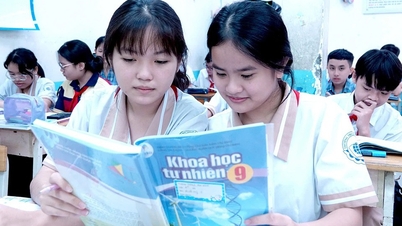
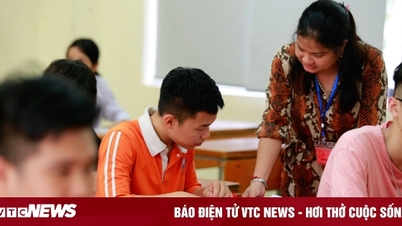




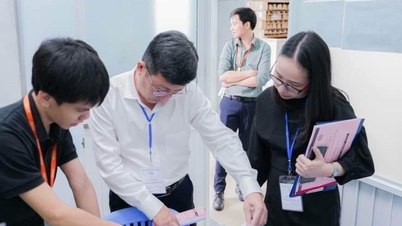


















![[Photo] National Assembly delegates visit President Ho Chi Minh's Mausoleum](https://vphoto.vietnam.vn/thumb/1200x675/vietnam/resource/IMAGE/2025/5/5/9c1b8b0a0c264b84a43b60d30df48f75)




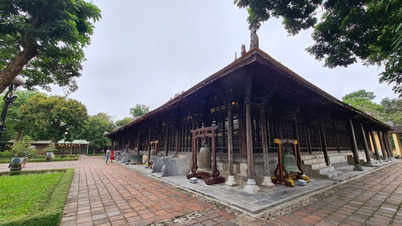



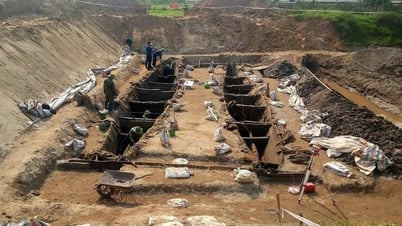

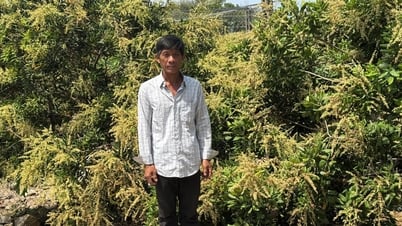
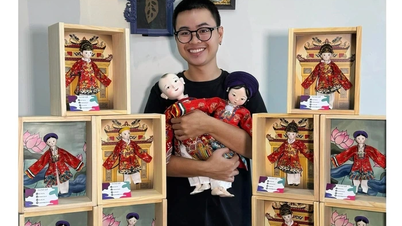



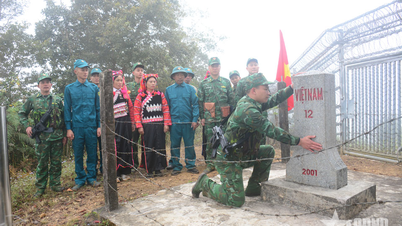

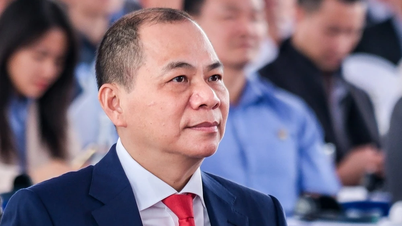



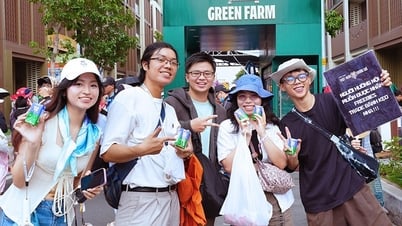




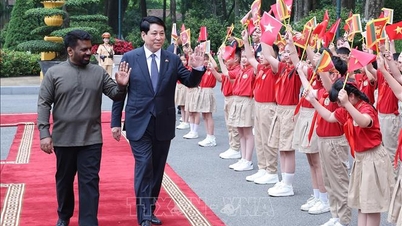

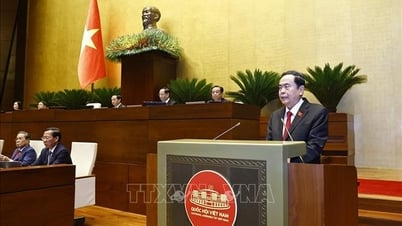
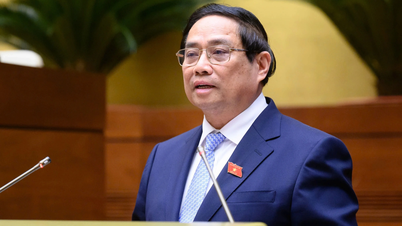
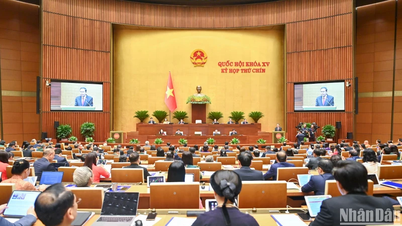


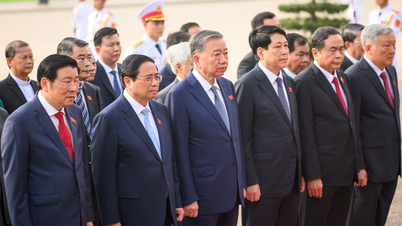






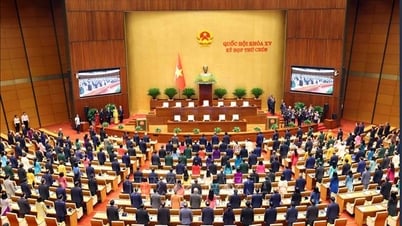



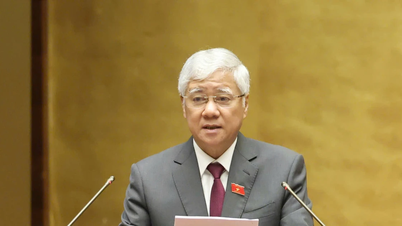




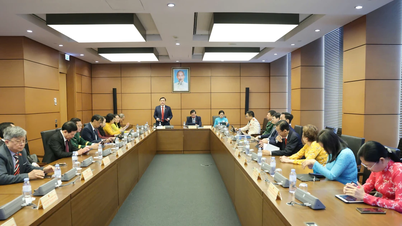


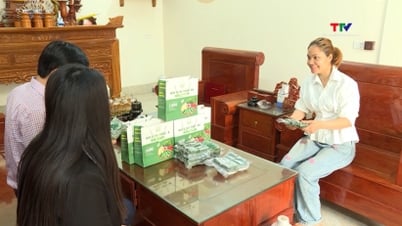

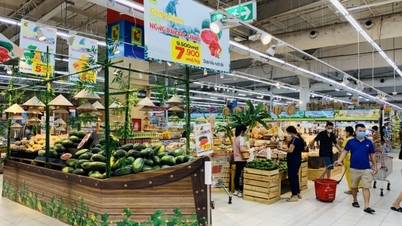









Comment (0)